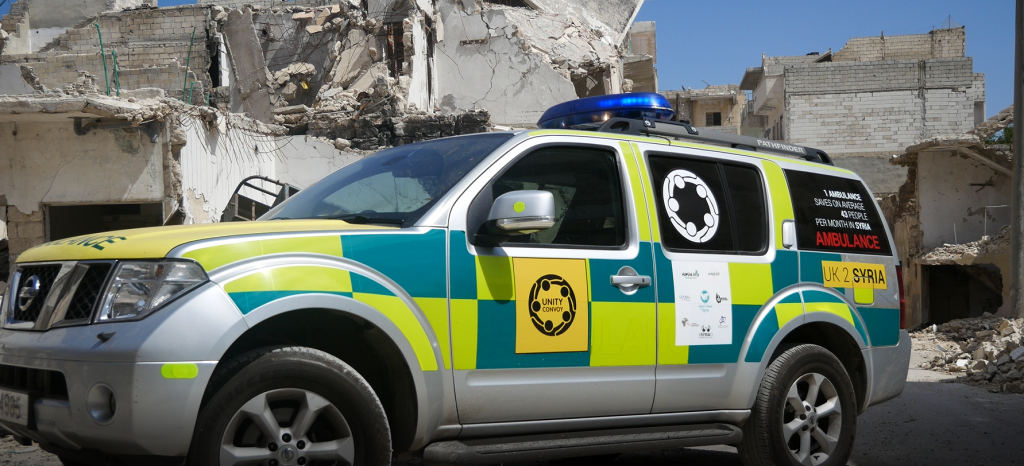Ambulances donated by UK public save lives in Syria within hours of arrival
Biggest ever convoy of emergency vehicles driven across five counties to Syria, where they are already being put to use

Your support helps us to tell the story
From reproductive rights to climate change to Big Tech, The Independent is on the ground when the story is developing. Whether it's investigating the financials of Elon Musk's pro-Trump PAC or producing our latest documentary, 'The A Word', which shines a light on the American women fighting for reproductive rights, we know how important it is to parse out the facts from the messaging.
At such a critical moment in US history, we need reporters on the ground. Your donation allows us to keep sending journalists to speak to both sides of the story.
The Independent is trusted by Americans across the entire political spectrum. And unlike many other quality news outlets, we choose not to lock Americans out of our reporting and analysis with paywalls. We believe quality journalism should be available to everyone, paid for by those who can afford it.
Your support makes all the difference.A huge convoy of 100 retired ambulances that set off from the UK in April has arrived in Syria, where they are already being put to use.
Volunteers for the charity coalition Unity Convoy drove the decommissioned vehicles across five countries, arriving at the Syrian border last week, in what is thought to be the biggest aid convoy of its kind to make such a long journey.
The vehicles were transferred to rebel-held Idlib province, where they were delivered to local hospitals.
The fully equipped units were called into use within hours of arrival after an explosion hit a marketplace in Idlib city on 20 June.
“As soon as we received the Unity Convoy Ambulances, we heard an explosion nearby. The ambulance response team immediately set off to the area of the incident,” Dr Moustafa of Idlib’s Health Directorate said in a statement.
The five UK charities that organised the Unity Convoy say that one ambulance can save up to 43 lives a month.
“The British public can be proud of their contribution to the humanitarian effort in Syria over the past years. This is yet another example of that contribution,” Unity Convoy spokesperson Alim Sharmas said in relation to the explosion.
No claim of responsibility was made for the incident, which injured several people and killed three.
An agreement declaring the establishment of four 'safe zones' across Syria, including Idlib, was negotiated by Russia, Iran and Turkey last month and is mostly holding.
Several hospitals and medical centres across the region have already been bombed out of operation, however, and face equipment, medicine and staff shortages. Small pockets of ground fighting and mortar shelling are ongoing between al-Qaeda affiliated rebel forces, US-backed rebels, and forces supportive of Syrian President Bashar al-Assad’s government.
The Unity Convoy was born earlier this year after the targeting of hospitals by Syrian and Russian air strikes during the fall of Aleppo in late 2016.
Up to 100 ambulance units were lost in the bombing, contributing to the death toll as emergency workers struggled to care for casualties in civilian transport.
The British charities involved managed to raise £500,00 in just three months to get the idea off the ground and send the ambulances on their way to Syria.
In the past the UK’s Charity Commission regulator has warned against sending convoys without government or UN co-ordinated delivery, fearing they could be used for “non charitable purposes.”
“[We do] not support the use of aid convoys as an effective or safe way to deliver aid,” the Commission told Middle East Eye earlier this year.
Join our commenting forum
Join thought-provoking conversations, follow other Independent readers and see their replies
Comments